In Full Bloom: from Gardens and Health Week to the Chelsea Flower Show- A Sanctuary for Wellbeing

In the tapestry of human experience, flowers have always held a special place. They are nature’s brushstrokes, painting our world with vibrant colors, delicate textures, and mesmerizing scents. Their ethereal beauty has inspired poets, artists, and dreamers alike, becoming woven into the very fabric of our lives. As the great French novelist Victor Hugo once said, “Life is the flower for which love is the honey.” In many ways, flowers are the embodiment of love – a love that we share with one another and with the earth that nourishes us.
Throughout the ages, we have celebrated the milestones of our lives with flowers. From the joyous occasions of births and weddings to the solemn moments of funerals, flowers have served as symbols of our emotions, our hopes, and our dreams. They have become the universal language of love, a way for us to express the inexpressible and connect with those we cherish.
In a world where our lives are increasingly intertwined with technology and urbanization, the simple act of gardening and tending to a garden has become a sanctuary for many. Gardening is not only a healthy choice, offering a myriad of physical, mental, and emotional benefits, but it is also a powerful reminder of our connection to the Earth and to the cycles of life.
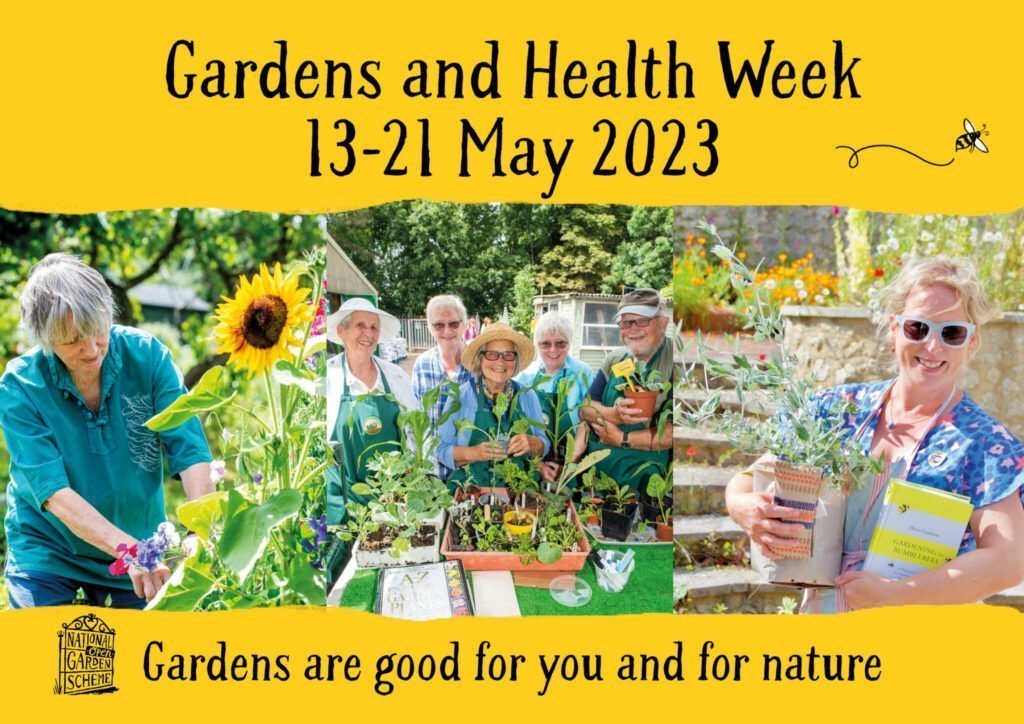
Embracing the Green: Health Week Blooms from 13th to 21st May
As the urban landscape expands, the luxury of having a personal garden is becoming less and less common, with only 45% of British households having access to a garden, according to a 2020 report from the Office for National Statistics. However, the human longing for green spaces and the beauty of flowers remains undiminished. This is evident in the growing popularity of public gardens and flower shows across Great Britain.
Committed to promoting the benefits of gardens and green spaces, the National Garden Scheme proudly ushers in its annual Gardens and Health Week, set to bloom from 13th to 21st May. This week-long celebration focuses on highlighting the healing power and positivity that nature brings to our lives.
With over £67 million donated to support health and nursing charities, including a generous £2.7 million through its Gardens and Health Programme, the National Garden Scheme is steadfast in its mission to underscore the vital role gardens play in our overall wellbeing.
George Plumptre, the Chief Executive of the National Garden Scheme, sheds light on the organization’s commitment to fostering health through gardening. He recalls, “Our journey began in 2016 with the release of our commissioned report from The King’s Fund titled ‘Gardens and Health: implications for policy and practice’. Since then, our dedication has not wavered. We consistently strive to support and augment funding for garden projects in healthcare environments and community gardens. These green spaces serve as crucial conduits for our personal wellbeing and the broader health of our planet.
In the words of the British horticulturist Gertrude Jekyll: “The love of gardening is a seed once sown that never dies.” As we celebrate the enduring beauty of flowers and the nourishing power of gardens, let us remember that the seeds of love we sow today will blossom into the gardens of tomorrow. And as we walk the paths of the gardens and flower shows of Great Britain, let us be inspired by the creativity and passion that give life to these spaces, and let us carry that inspiration into our own lives, nurturing our connection to the earth and to one another.
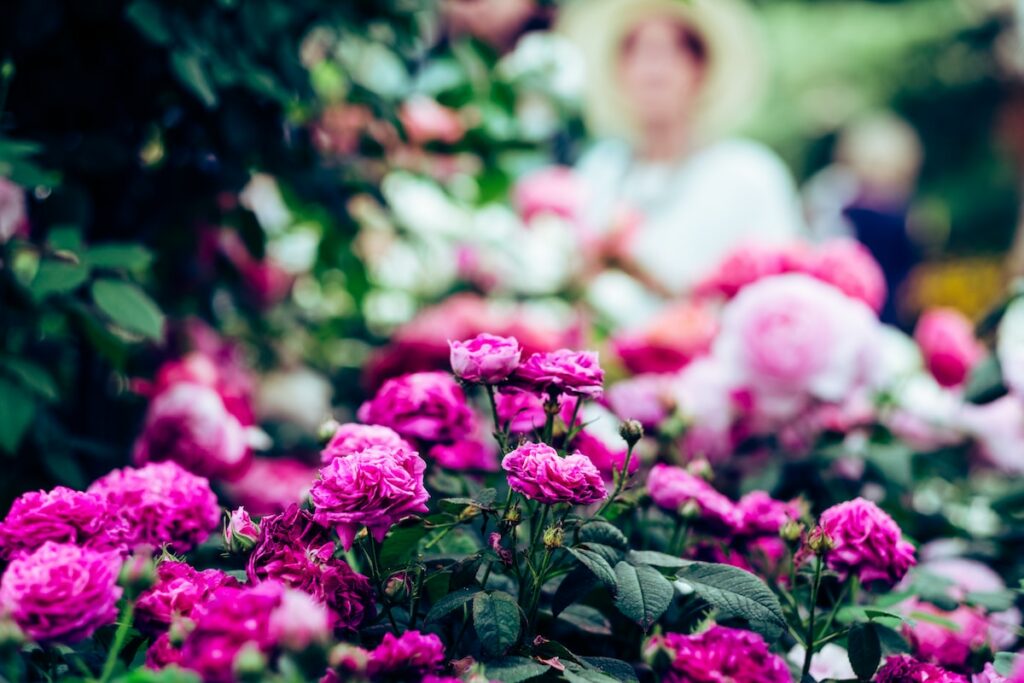
“The earth laughs in flowers,” said Ralph Waldo Emerson, capturing the joy that these natural wonders bring to our lives. Flowers have the power to transform spaces and moods, adding beauty, resilience, and the ephemeral nature of life in their delicate petals. Flowers have been always in our lives, in every culture. For centuries flowers helped us celebrate, express love or silent loss. From a single rose to your Valentine, or a basket with flowers on Mother’s Day to elaborate floral arrangements at a wedding, flowers speak a language that transcends words. Whether you want to say “thank you” or “sorry” it is always so much better to say it with flowers.
A 2015 survey conducted by the Society of American Florists found that 65% of participants reported that receiving flowers made them feel special, and 69% said that it lifted their spirits. It’s clear that the tradition of gifting flowers, a practice dating back to ancient times, continues to be a potent means of expressing emotion.
But flowers are not just for special occasions. They are an everyday source of joy, beauty, and inspiration. The very act of tending to a garden or a potted plant can be a source of immense pleasure and fulfilment. Gardening allows us to engage with the natural world, inviting balance and serenity into our lives.
A 2016 report from the King’s Fund, an independent charity working to improve health and wellbeing in England, revealed that people who engage in gardening activities have a 36% lower risk of developing dementia compared to non-gardeners. The report also highlighted the positive effects of gardening on mental health, reducing symptoms of depression and anxiety.
However, with urbanization reshaping our lifestyles, personal gardens are becoming less common. In the UK, for instance, the National Housing Federation reported in 2020 that around 2.5 million homes don’t have access to a garden. This shift emphasizes the importance of public gardens and flower shows as essential spaces for people to connect with nature.
Fortunately, Britain’s love for gardens is not just a private affair; it is a national pastime. The country is home to some of the world’s most beautiful gardens and flower shows, like the Chelsea Flower Show, which attracts over 168,000 visitors every year. These public spaces and events offer an opportunity for everyone to experience the joy of flowers and gardening, regardless of whether they have a personal garden.
To plant a garden is to believe in tomorrow.
Audrey Hepburn
Flowers and gardens are symbols of hope, beauty, and life itself. They remind us to pause, to appreciate the beauty around us, and to nurture our connection with nature. Whether we’re celebrating a loved one with a bouquet, tending to our garden, or visiting a flower show, let us remember to cherish these moments of connection and renewal that flowers so generously offer us. After all, in every petal and leaf, there is a story of resilience, growth, and the enduring charm of nature.
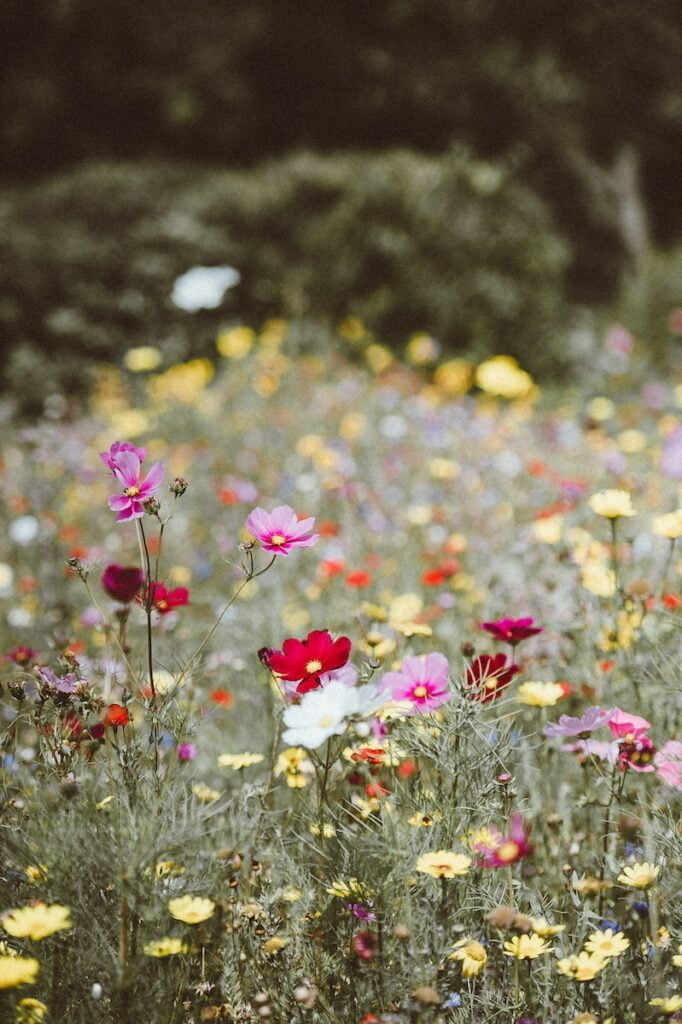
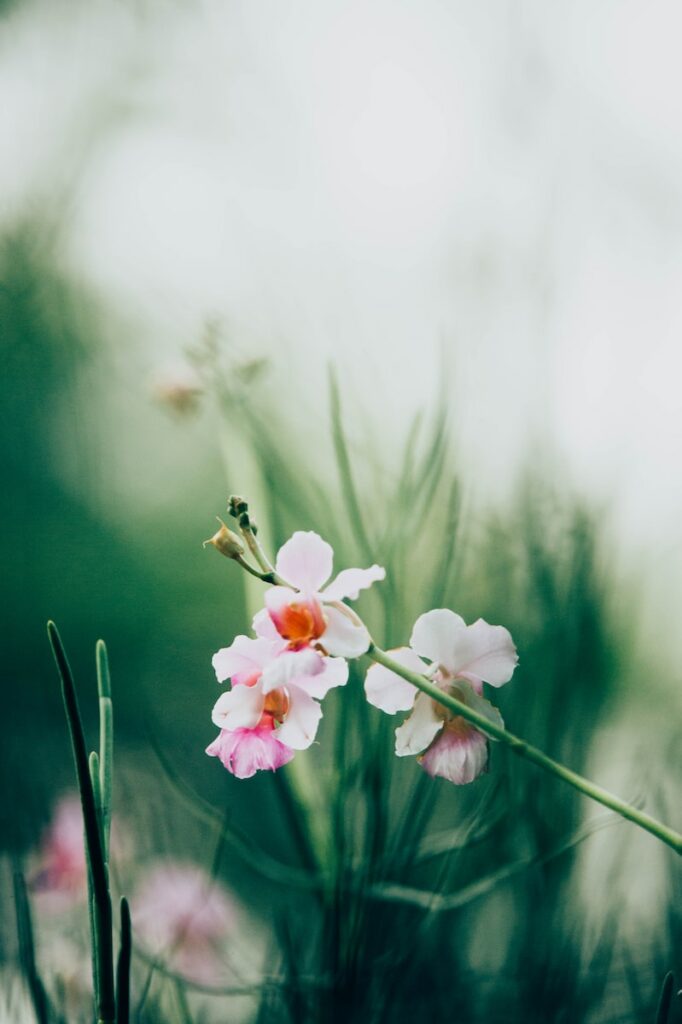
A timeless tradition: The Chelsea Flower Show’s resilience and renewal
In the heart of London, amidst the hustle and bustle of the city’s relentless tempo, there exists an oasis. For over a century, the Royal Hospital Chelsea has played host to the grandest flower show on the planet, the Chelsea Flower Show. Known for its stunningly gorgeous floral displays and innovative garden designs, the show is not just a celebration of horticulture, but a testament to the resilience and spirit of the human connection to nature.
The Chelsea Flower Show, organized by the Royal Horticultural Society (RHS), has a rich history dating back to 1913. Over the years, it has grown into an event that captivates millions of people around the world. In 2019, over 168,000 visitors descended on the grounds of the Royal Hospital Chelsea, and nearly 5 million people tuned in from home to watch the BBC’s extensive coverage of the event. This annual tradition has firmly rooted itself in the tapestry of British culture, becoming a symbol of the nation’s enduring love for gardens and green spaces.
Every year, over 500 exhibitors from all corners of the world gather at the show to showcase their dazzling designs, innovative planting ideas, and breath-taking floral displays. Each stand is a world within itself, brimming with colour, texture, and life, portraying a unique story that transcends cultural and geographic boundaries. From the grandeur of the Show Gardens, which push the boundaries of design, to the more intimate Artisan Gardens that champion sustainability and the use of traditional materials, the Chelsea Flower Show is a stage where creativity, craftsmanship, and nature intertwine in a beautiful ballet.
A significant part of the Chelsea Flower Show’s charm lies in its royal patronage. Her Majesty Queen Elizabeth II had graced the show with her presence almost every year since her accession to the throne in 1952. This year, however, marks a poignant moment in the show’s history as it is the first year without the Queen following her passing.
The Queen’s absence will be felt by all those who have been a part of this glorious tradition. Her unwavering support and affection for the show have left an indelible mark on its history. Yet, as a testament to the enduring spirit of the show and the Queen’s own resilience, the Chelsea Flower Show will carry forward its legacy of celebrating nature’s beauty and the human spirit’s creativity.
The Queen’s love for the Chelsea Flower Show was never about formality; it was a passion deeply rooted in her love for nature and gardens. It was a love that she shared with millions around the world. Her absence will not diminish the charm of the show; instead, it will serve as a reminder of her enduring legacy and her shared passion with so many.
Chelsea Flower Show is more than just an event. It is a testament to the resilience and creativity of humanity, the enduring beauty of nature, and our shared passion for preserving and celebrating it. In the face of loss and change, the show reaffirms our collective capacity for renewal and growth.
As we anticipate the opening of the gates of the Royal Hospital Chelsea, we can be sure that the Chelsea Flower Show will continue to inspire millions around the world. It will continue to be an annual celebration of the power of nature and human creativity, a beacon of hope and beauty in the heart of London, and a fitting tribute to the Queen’s enduring legacy.
The Queen may not be physically present, but her spirit, her love for the show and the joy it brought to people around the world, will forever be a part of the Chelsea Flower Show. As visitors walk through the beautiful gardens and admire the breath-taking displays, they will be reminded of love timeless love for flowers.
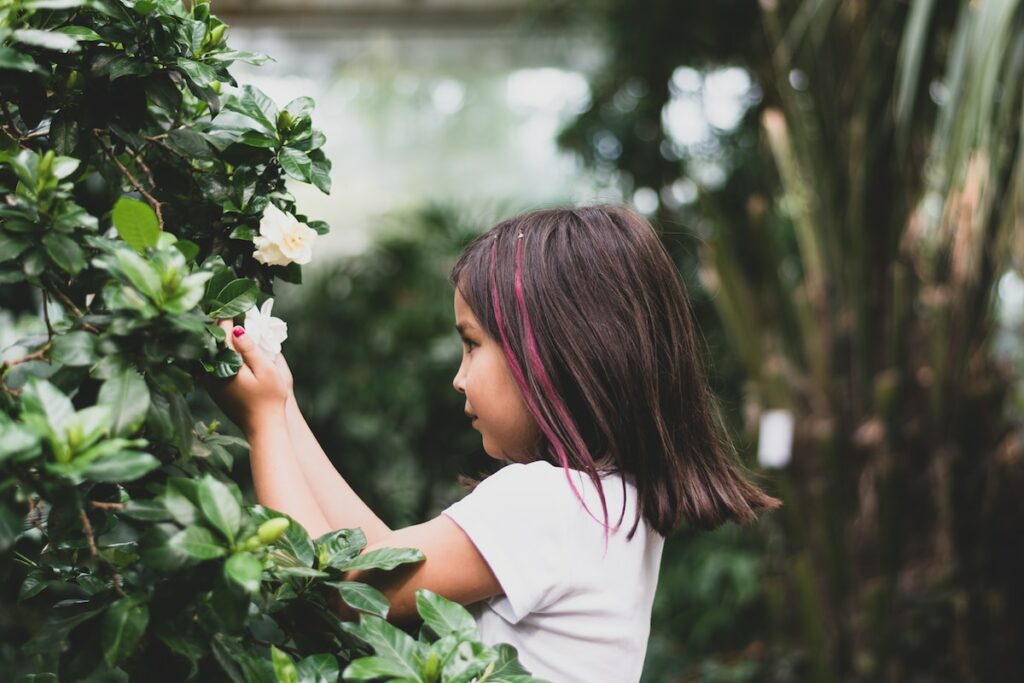
To be in a garden, to tend to its needs, and to watch it flourish is an experience that touches your heart, your emotions, and adds value to the psychological layers of our being. Gardening, in many ways, mirrors life itself. It teaches us patience, as we can’t rush the growth of the plants. It instils in us resilience, as we learn to adapt to changing seasons and unexpected challenges. And it brings us hope, as we witness the miracle of life unfold before our eyes with each bud that blossoms.
Scientific research supports this, indicating that gardening can have significant health benefits. A 2017 study published in the Journal of Public Health found that individuals who spent time in green spaces, including gardens, had lower rates of depression and anxiety. The physical activity associated with gardening also contributes to improved cardiovascular health and physical fitness.
Gardening, as an act of creation and care, also fosters a sense of purpose and accomplishment. Each seed planted, each weed pulled, and each flower bloomed is a testament to the gardener’s dedication and effort. This sense of purpose can be a powerful antidote to the feelings of stress and anxiety that often accompany our fast-paced lives.
But perhaps the most profound impact of gardening is the sense of connection it fosters. Gardening connects us to the rhythms of nature and the cycles of life. It bridges the gap between us and the natural world, reminding us of our role as stewards of the earth. This connection can be deeply grounding and nourishing, providing a sense of peace and tranquillity that is often elusive in our modern world.
As we walk the paths of the Chelsea Flower Show, taking in the stunning displays and innovative garden designs, we are not just admiring the beauty of the flowers and plants. We are experiencing the collective effort, creativity, and love that went into creating these gardens. Each garden is a testament to the nurturing influence of gardening, a tangible manifestation of the benefits that spending time in green spaces can bring to our wellbeing.
In the absence of Queen Elizabeth II, the Chelsea Flower Show serves as a poignant reminder of her enduring love for gardens and the joy they bring. Her absence is felt, but her spirit is ever-present in the verdant displays and the thrum of life that pulses through the show.
As we honour the Queen’s legacy and celebrate the beauty and resilience of nature at the Chelsea Flower Show, let us also remember the nurturing influence of gardens and the power they have to heal, connect, and inspire. Let us carry forward the Queen’s passion for green spaces and the lessons they teach us about life, growth, and renewal. For in every seed planted and every flower bloomed, we are not just creating beautiful gardens – we are nurturing our wellbeing and fostering a deeper connection with the world around us.
Do you want to share your story and inspire our readers ? Know that every story is paving the way for a brighter, happier future.





